The Honghe Hani Rice Terraces are the system of Hani rice-growing terraces located in Honghe Prefecture, Yuanyang County, Yunnan, China. The terraces' history spans around 1,200 years. In 2013, the Honghe Hani Rice Terraces were listed as a World Heritage Site (Cultural Landscape of Honghe Hani Rice Terraces). Since then, more and more experts and the public have been paying attention to the problems such as the impact of modern industrial civilization and economic development, how the forest ecosystem and soil and water can be effectively maintained, and whether the diversity of traditional crops will be damaged.
In July 2019, CBCGDF sent a letter to the relevant government departments of Yunnan Province and Honghe Prefecture on the protection of Hani terraces. The focus was on four aspects of the protection and development of Hani terraces and five suggestions. It is gratifying that the relevant leaders of Yunnan Province and Honghe Prefecture attached great importance to this and made instructions and made demands. Relevant local departments timely organized relevant departments in accordance with the requirements, sorted out and verified the work before and after Hani terraced became a world cultural heritage, and studied and summarized the situation of the protection and utilization of Hani terraces in recent years.
On August 16, the deputy governor of Honghe Prefecture of Yunnan Province led a delegation of five people including the Director of the Honghe Hani Terraces World Cultural Heritage Management Administration, the full-time deputy director of the Management Committee of the World Cultural Heritage Hani Terraces in Yuanyang County, and a cadre from the Honghe Prefecture government office visited China Biodiversity Conservation and Green Development Foundation (CBCGDF), together with the Secretary-General of CBCGDF and colleagues from CBCGDF, conducted in-depth exchanges on issues such as the balance between protection and development, building ecological civilization, and promoting Chinese traditional culture. The representatives from the Honghe Prefecture, also made detailed answers to the problems of the decline of forest ecological functions, the damage caused by tourism development, the loss of agricultural diversity of terraces, and the changes of traditional residential buildings mentioned in the letter from CBCGDF.
The deputy governor of Honghe Prefecture said that they are very grateful to CBCGDf for the concern about the Honghe Hani Terraces, and also welcome experts to provide opinions and suggestions on the existing problems. Leaders at all levels in Yunnan Province and Honghe Prefecture attach great importance to the implementation of the concept of sustainable development, while attaching great importance to the protection of the world cultural heritage Hani Terraces. In recent years, the relevant government departments have carried out a lot of work on terrace ecosystem protection, industrial development, comprehensive improvement and mechanism innovation, including afforestation, water loss in the governance of world cultural heritage areas, and the area of forests in water sources.
The comprehensive cultivation and breeding model of “rice, fish and duck” promoted in Hani Terraces has covered more than 140,000 mu, benefiting more than 20,000 farmers, and has effectively mobilized the enthusiasm of farmers to farm. The sales model of “Internet + Red Rice” has successfully promoted the development of local red rice-based products, and expanded the industrial chain of red rice produced in terraced fields; 60 villages in the World Cultural Heritage Area have concentrated on comprehensive remediation, and domestic garbage has been built. There are four pyrolysis stations, 15 artificial wetland treatment facilities for village domestic sewage, and 75 toilets for drought-to-water treatment. They have improved the living environment and provided the living standards of local people. In December 2018, Hani Terraces was listed as the theoretical practice innovation base of “Lucid Waters and Lush Mountains Are Invaluable Assets” by China's Ministry of Ecology and Environment. The protection mechanism of Hani Terraces has been gradually improved, forming a favorable situation in which industrial development is supported, ecological construction is upgraded, protection awareness is enhanced, and cultural heritage is inherited.
In response to the suggestions made by the experts, the deputy governor also said that there are indeed contradictions and difficulties in the protection and development of Hani Terraces. He hopes that all sectors of the society will pay attention and seek solutions. For example, the maintenance of the architectural style, the traditional civil and wooden walls, and the style of the mushroom-shaped houses with thatched roofs are obviously incompatible with the safety and the expectations of local farmers for modern life. Therefore, further exploration is needed. It is an architectural style system that can protect the traditional architectural style and meet the needs of farmers for their modern life.
The landscape of the terraced fields is maintained by the farmers who farmed, and the protection of the terraces must solve the problem of low income of farming. Therefore, it is necessary to study how to effectively maintain and utilize the local characteristic culture, rich agricultural biodiversity, and a world-class business card that enhances brand value and forms a protective mechanism. The deputy governor said that the solution of these problems requires the support of innovation in technology, management, marketing, etc., and hopes that CBCGDF and related experts will participate and make recommendations.
After listening to the deputy governor's statement, Dr.Zhou expressed his gratitude to everyone for their arrival and the attention of relevant government departments in Yunnan and Honghe Prefecture. Dr. Zhou said that the Hani Terraces in Honghe Prefecture belong to the Honghe (Red River), belong to China, and belong to the world. The protection of the world's cultural heritage is still very serious. Because of the particularity of habitat and traditional farming culture, Hani Terraces lack the experience to be used for protection, and there are many people in the world who care about it. Therefore, the protection of Hani Terraces needs to be prevented before they occur. Dr. Zhou mentioned that it is far better for us to make comments than to be commented by people from other countries.
Under the guidance of the new ecological civilization concept proposed by President Xi, under the guidance of the overall food security strategy, the development and protection of Hani Terraces has been traced. To develop the biodiversity of agriculture, to lay a good name for the world's cultural heritage, to go international and to the high end, and to make a debut in the world, then the Fifteenth meeting of the Conference of the Parties of the United Nation's Convention on Biological Diversity (CBD COP15) which will be held in Kunming, Yunnan Province next year is a large-scale opportunity. Dr. Zhou said that CBCGDF is willing to play a wide range of expert resource advantages, the organization's own world influence, etc., to help the protection of Hani Terraces, and is willing to contribute to the development and prosperity of China's world cultural heritage, and fully assist Hani Terraces to be built as a model for the classic ecological civilization construction, providing the world with a model example of China.
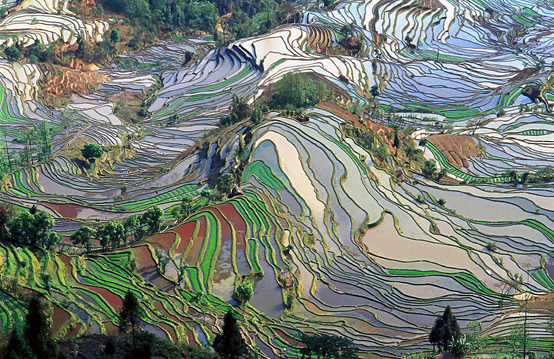
(Photo credit: Wikipedia)
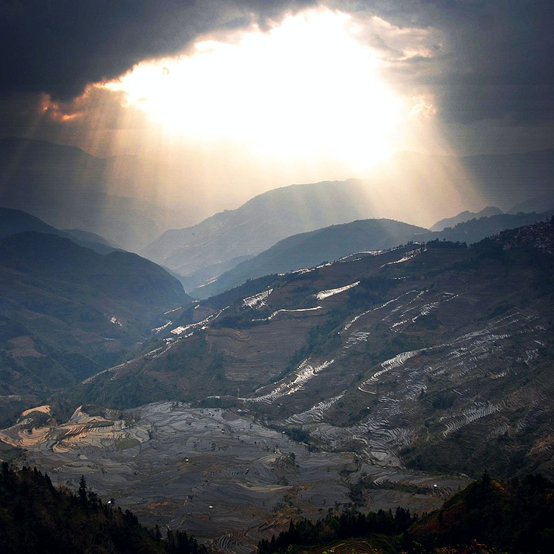
(Photo credit: Wikipedia)
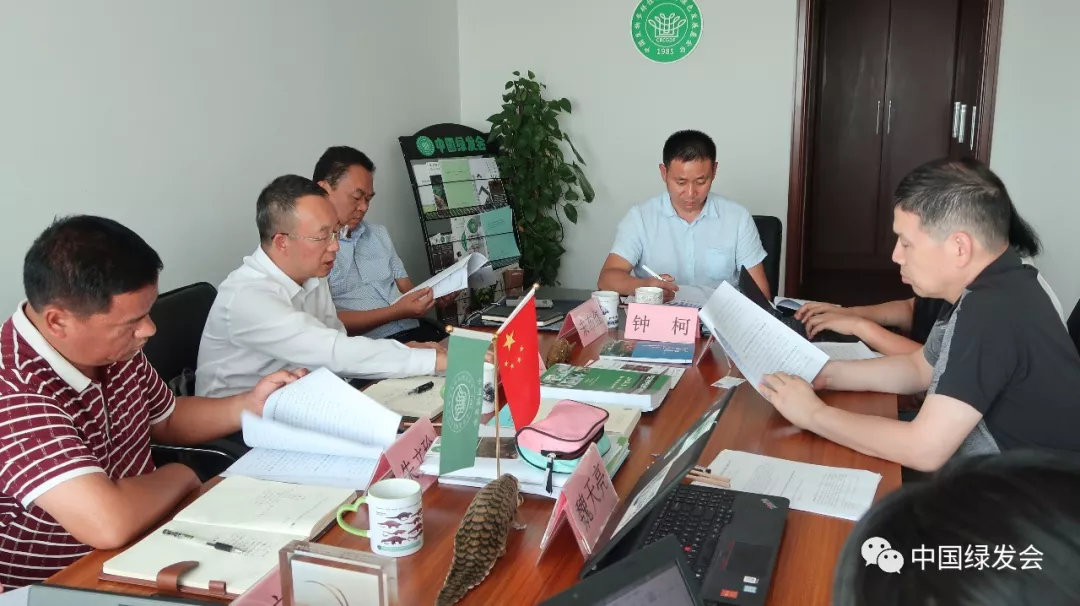
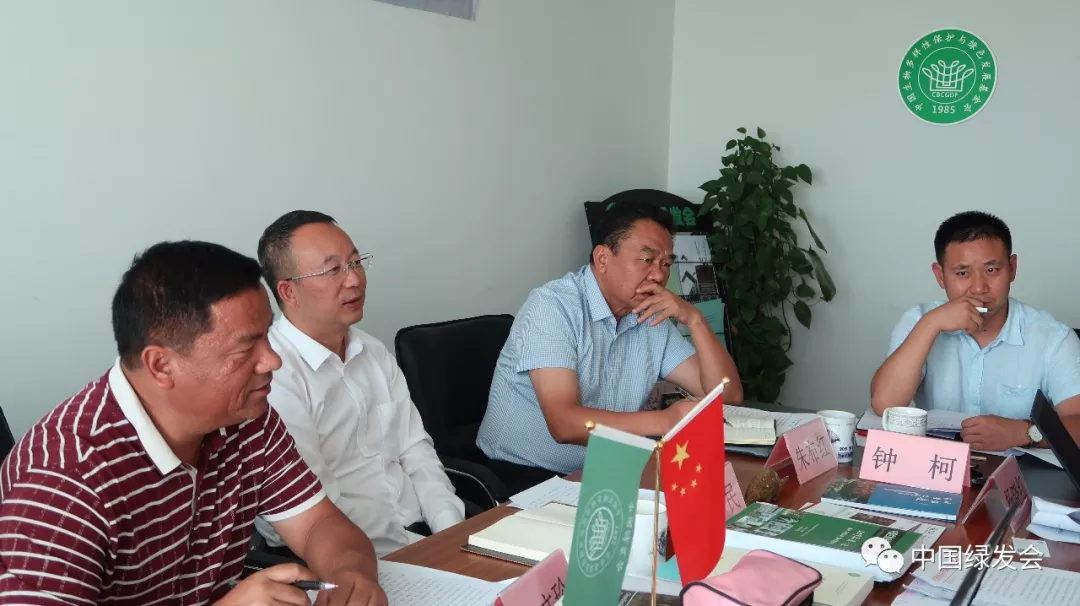
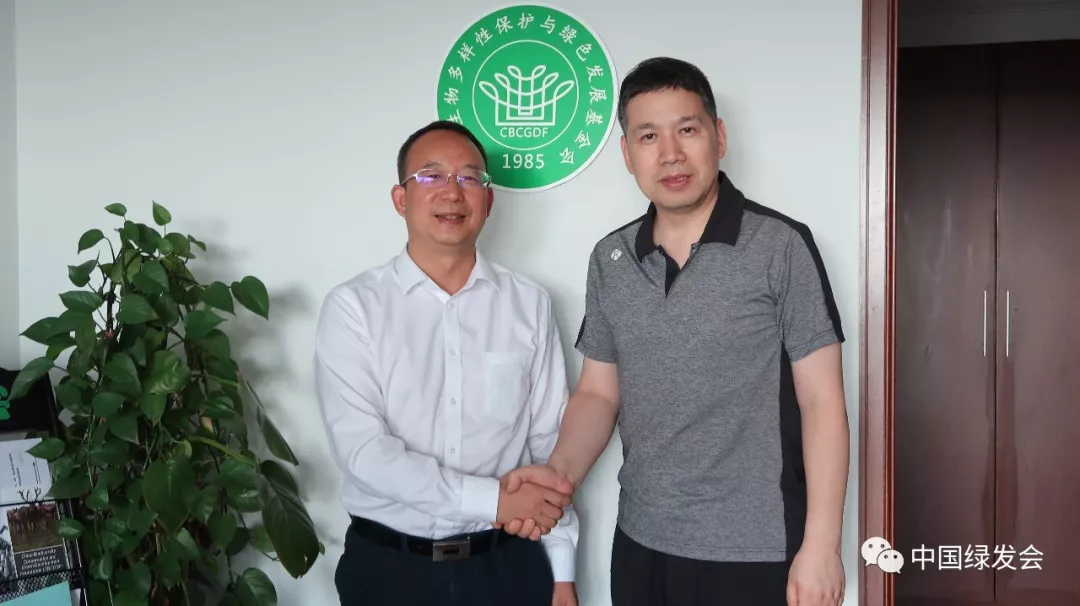
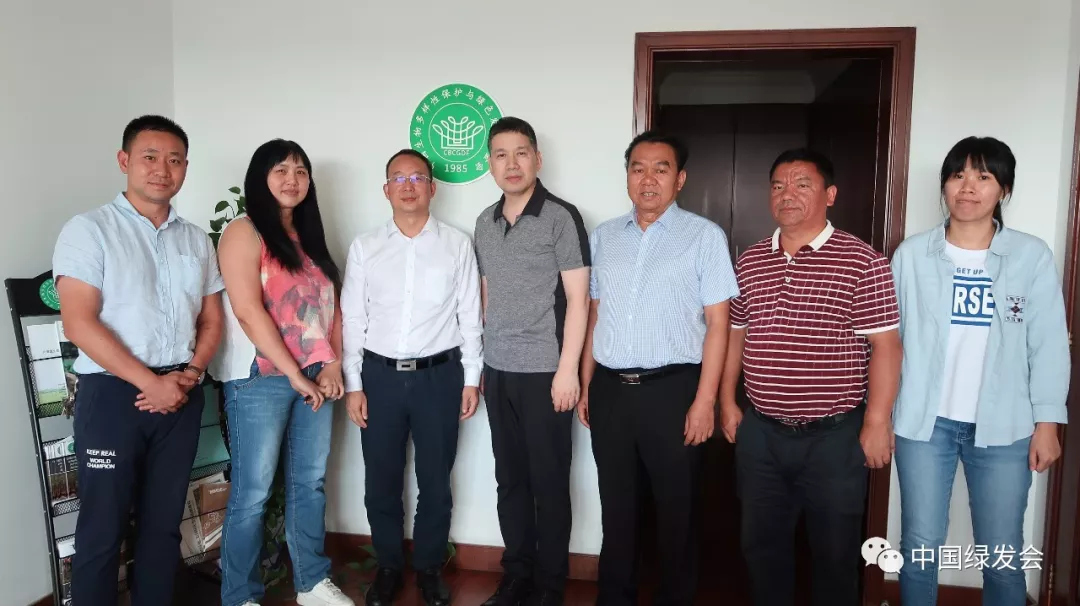
(Photo credit: CBCGDF)
Original Chinese article:
http://www.cbcgdf.org/NewsShow/4854/9621.html
By / Maggie
